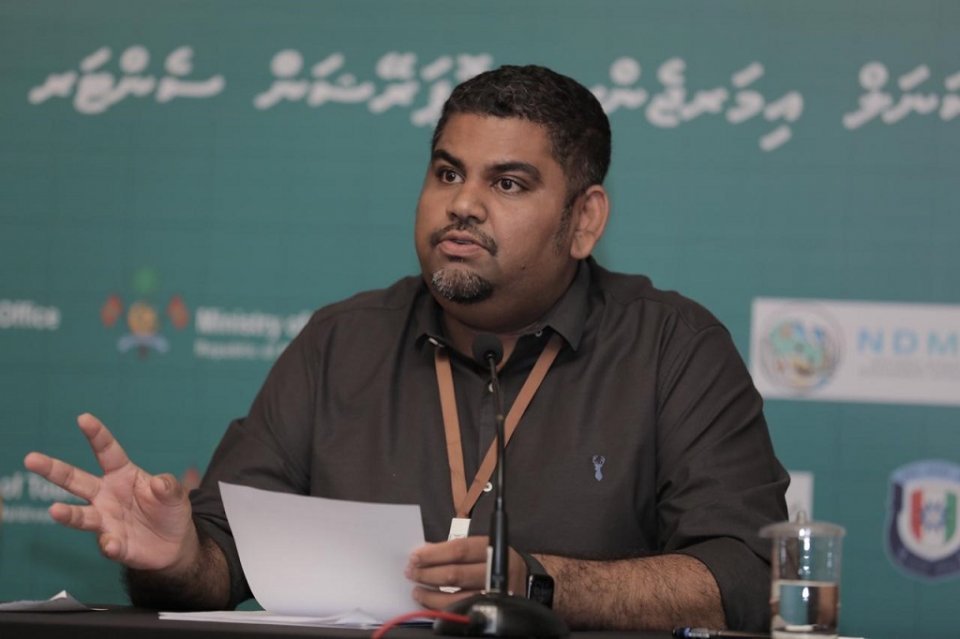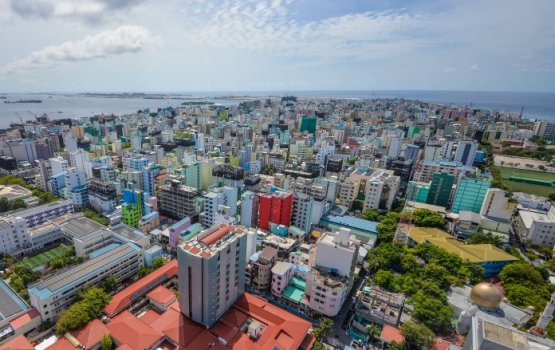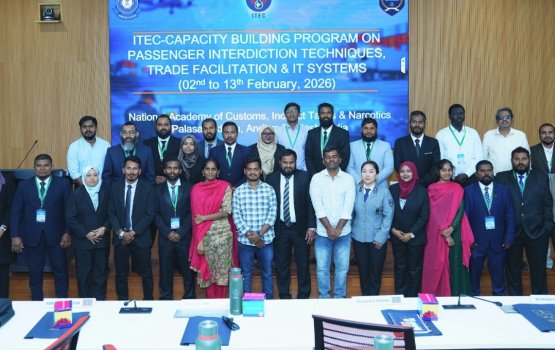National Emergency Operations Center NEOC spokesperson Mohamed Mabrook Azeez says each government agency have formed a contingency plan their fight against Covid-19 with the number of frontline workers infected with the virus remain alarmingly high in the Maldives.
Answering a question from ‘The Press’ at last night NEOC media briefing, Mabrook said if the number of infected frontline workers continues to rise, the teams working in the field would be reduced.
He assured that their work would not be hindered as a plan for such a situation has already been made.
Mabrook said even though the plans to mitigate the issue are in place, work is expected to slow down. He said not much can be done to avoid this slowdown but the agencies have come up with ways to continue their work without halt even with less staff.
NEOC spokesperson said when the infected frontline workers return back to their posts, they would be more immune to the illness and that they can be used effectively.
Mabrook said when the community spread of the virus was detected, it was anticipated that a number of frontline workers would be affected by the crisis. He said that so far 199 frontline workers have tested positive for Covid-19 and that this includes non-healthcare professionals as well. Mabrook said the main challenge was the completion of the Covid-19 health facility in Hulhumale as it was also a major cluster of the infection.
Mabrook said the Covid-19 taskforce has always prioritized the wellbeing of the frontline workers in the fight against the global pandemic and that many precautions are already in place to guarantee they're well being. This includes testing, isolating and quarantining of frontline workers.
Mabrook said once a frontline worker is tested positive, action is taken to ensure that other frontline workers are kept safe from the infection and these precautions have proven effective.
Meanwhile, HPA epidemiologist Dr. Ibrahim Afzal said looking at the trend of the infection spread, the number of infection frontline workers spiked between 8th May and 9th May because of the COVID cluster. He said although 51 frontline workers tested positive on a single day, lately these numbers have been decreasing day by day.
Dr. Afzal said that frontline workers are most at risk of contracting the virus and that risk cannot be fully mitigated as there is a chance of them being infected with the virus regardless of the measures taken against it. He said the numbers showed that the rate of infections has slowed down and with this less number of frontline workers would be infected.
He said that this is the reality of the crisis and the work done to overcome it.










